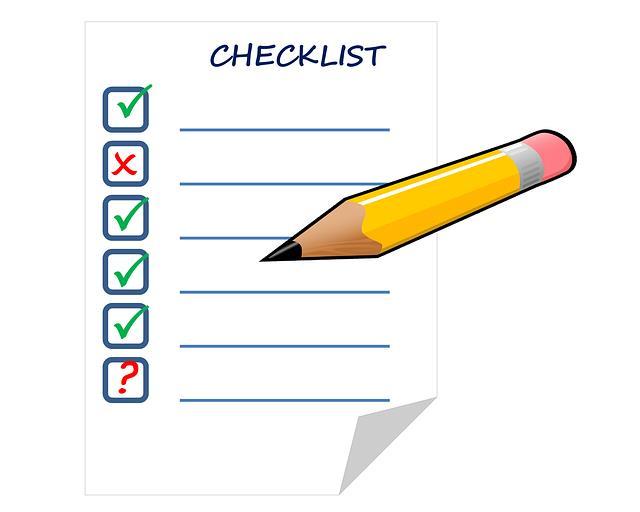








MoneyMagpie DON'T WANT TO WORK FOREVER? HERE'S HOW Jasmine Birtles
DON'T WANT TO WORK FOREVER? HERE'S HOW | PAGE CONTENT Step 1 WHERE DO YOU WANT TO BE? …………………………………… 3 Step 2 WHERE ARE YOU NOW? ………………………………………………. 4 Step 3 HOW MUCH ARE YOU WORTH? ………………………………….. 5 Step 4 WHAT IS YOUR POSITION?…………………………………………. 7 Step 5 WHAT IS YOUR INVESTOR PERSONALITY? ……………… 9 Step 6 GET IN ORDER ……………………………………………………………… 10
WHERE DO YOU WANT TO BE?
If you don’t want to work forever, the question is what are you aiming for and when? There’s no point investing if you don’t have goals - things to invest for, things you want to do and things you want for your family. Ten is a good number to aim for on each list – one for yourself, one list for you and your partner, one list for your family. You don’t have to stop at ten but it’s a good number to get you going.
Write down all the things you’d like to do with your life, the places you’d like to see, the experiences you’d like to have. What would you like to provide for your family? What are your education goals for them, their future needs and the things you’d like to do as a family? Let your imagination roam around, don’t stint yourself, put down what you’d like in an ideal world.
Go crazy - is it Niagara Falls? The Grand Canyon? A pilot’s qualification? Really, this here is your life. Come up with ideas to give you financial responsibility and, most importantly, inspiration.
Nothing is set in stone. Personally I’m not good at planning things. I like spontaneity, being surprised by life and going in new directions that I had never even thought of. There’s nothing wrong in that and there’s no reason to plan things to the last detail and force yourself to keep to it.
All plans should be flexible and they can be updated and altered as circumstances change. But it’s useful at least to have an idea, a few reminders, of what you would like to be able to do now and in the future so that you can have a decent idea of why you need to save and invest. It doesn’t half concentrate the financial part of your mind! For endless inspiration visit my50.com where you can see other people’s list of 50 things to do or have.
If you’d like a few ideas, get yourself a DVD copy of ‘The Bucket List’ with Jack Nicholson and Samuel L Jackson. It’s about a couple of retired men with different levels of wealth
and very different views about what they want to do with their lives. Write your own ‘bucket list’ and make sure it has a lot of fun things in it that you can’t wait to do.
Here are a few suggestions from The Bucket List to give you some ideas:
• Witness something truly majestic
• Help a complete stranger for the common good
• Drive a Shelby Mustang
• Get a tattoo
• Skydive

• Spend a week at the Louvre
• See Rome
• Dinner at La Chevre d'Or
• See the Pyramids
• Visit the Taj Mahal in India
• Visit Hong Kong
• Victoria Falls
• Serengeti
• Cycle across the Great Wall of China
Speaking of not waiting to do them, remember, as I mentioned in the last chapter, that you don’t have to set aside happy experiences for retirement only. More and more people are taking gap years and sabbaticals, kind of taking retirement options during rather than just after their working lives. This can be you if you plan it right. Keep that very much in mind.
DON'T WANT TO WORK FOREVER? HERE'S HOW | PAGE 3
Chapter 1
WHERE ARE YOU NOW?
You need to know where you are in order to know what you have to do to get where you want to be. So, off-putting though it may sound, before you make any investment decisions you need to work out your current net worth (in financial terms not moral, although that helps long-term), where you are in your life and what you want to do with the rest of it and what your attitude to risk really is (as opposed to what you might think it is).
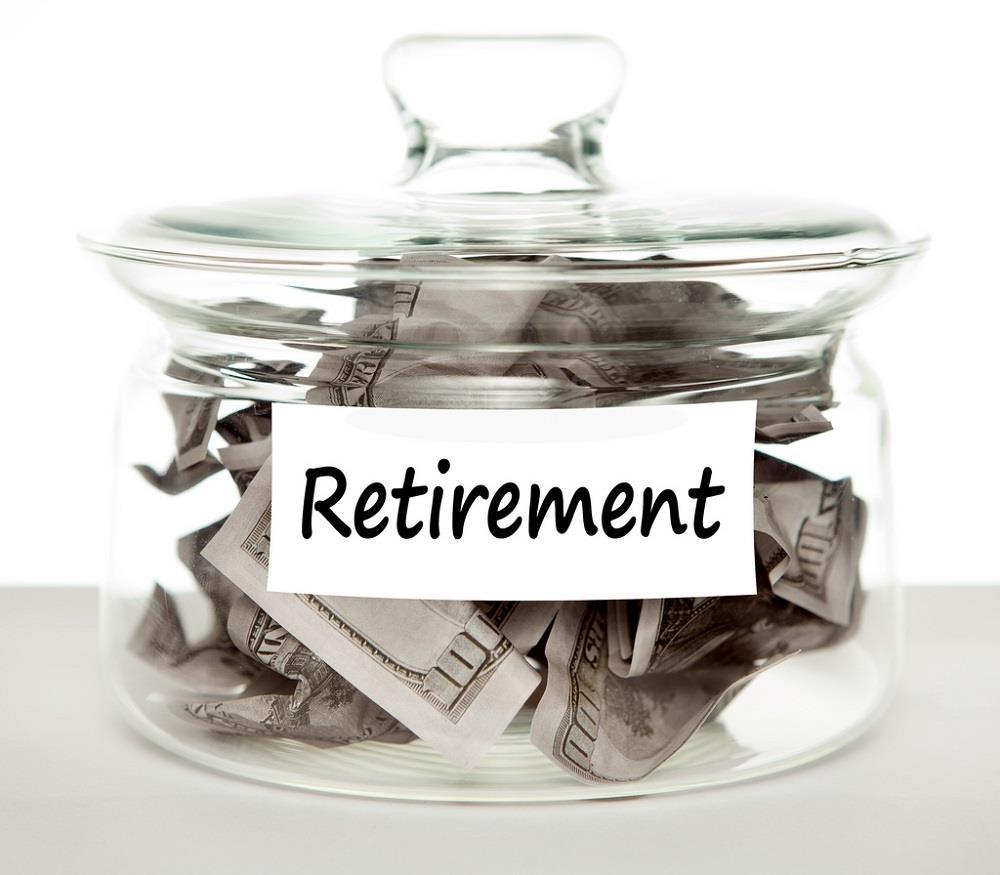
DON'T WANT TO WORK FOREVER? HERE'S HOW | PAGE 4
Chapter 2
HOW MUCH ARE YOU WORTH?
Get a pen and paper (back of an envelope will do) and write down a list of your financial assets - property, shares, savings, car, saleable goods, trust funds etc - and then a list of your liabilities - mortgage, credit card debts, overdraft, hire purchase, money owed to family etc. If you are married or in a civil partnership then do it with your spouse because your legal status as being part of a couple affects some of your financial issues.
While you’re in list mode, now may be a good time to do one of those pros and cons situations for yourself as well. Ask yourself if that ex is really worth texting back When did you last call your mum etc Mix it up! It needn’t be all about cash. Money is just a tool to a happier life, it’s not life itself.
Take away your total liabilities from your total assets and that will show your net financial worth. Here is an example:
DON'T WANT TO WORK FOREVER? HERE'S HOW | PAGE 5
Chapter 3
Liabilities Assets Cash Current accounts (negative if overdrawn) -£160.00 Savings accounts £2,500.00 Other cash holdings £300.00 Bank loans -£5,000.00 Credit cards (total including store cards, visa, mastercard etc.) -£8,500.00 Home House (current market value minus 10% to allow for costs of sale) £155,000.00 Outstanding Mortgage -£130,000.00 (net value of the home is therefore £25,000) Personal Car (immediate sales value minus 5% to be safe) £1,800.00 Outstanding total car loan -£800.00 Collectibles (art, stamps, bonzo dogs etc at conservative valuations) £150.00 Jewellery (saleable items that you would be happy to sell) £0.00 Student loans £0.00 Other £0.00 Investments ISA(s) £3,000.00 Mutual funds £0.00 Stocks and shares (current value – 15% to be safe) £0.00 Bonds £0.00 Other £0.00 Retirement Pension (current value) £120,000.00 Pension (costs of releasing now) -£40,000.00 Other Any other assets £0.00 Any other liabilities £0.00 Totals -£184,460.00 £282,750.00 Net worth £98,290.00
The amount you have outside of the net value of your home is the most important figure. If you have started to accumulate funds then that will give you a good basis from which to take the next steps in this chapter.
In the example above the bank loans and credit cards (-£13,500) are greater than the investments (£5,800). The person has the ability to clear their debts only if they sell their house and/ or cash in their pension.
If your net worth is negative then you’re in a difficult situation and all your focus needs to be on getting out of the red, at least in terms of your credit card debts and other general loans and overdrafts. The mortgage is a lower priority because the interest you are paying on it is probably lower, it will be harder to pay it all back quickly and you need somewhere to live! That said you will save thousands of pounds if you pay your mortgage off as soon as possible as I explain on page 13.
To find out more about getting out of debt and developing the all important cash cushion go to Moneymagpie.com and/or take advantage of the clever tricks and money making strategies in my previous book, ‘The Money Magpie’ (also by Vermilion).
If you would like to ask me questions directly then tweet me your questions to @Jasmine using the hashtag #ASKJASMINE, and I will do my best to answer your questions.
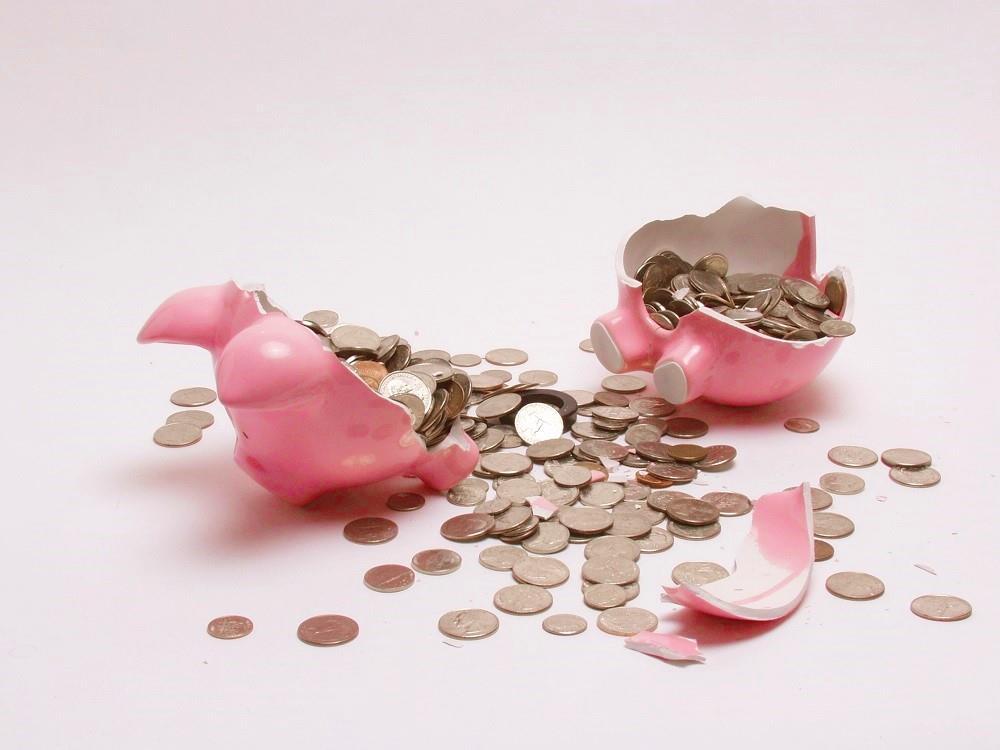
DON'T WANT TO WORK FOREVER? HERE'S HOW | PAGE 6
The crucial point to remember is that no investing can happen until your most expensive debts have been paid off.
GET IN ORDER
0% credit cards are fast disappearing from the market which makes it harder to switch outstanding balances at the end of the 0% period. They all now charge a substantial fee 3.5%) to switch each time which will add to your costs. So even these debts should be paid off as fast as is practical. Also, although student loans are cheap, while you still have some to pay off it can make it harder for you to get a
At this point it is well worth identifying when
Bad debt is the expensive sort, the credit card debt and loans that are taken out for unnecessary general spending (holidays, clothes, entertainment) that doesn’t get paid
1. Pay off debt - the devil’s in the debt. It just keeps rolling until you take control.
Debt is the devil when it comes to making money for yourself. It’s probably the single biggest barrier to wealth for most individuals.
Before you even start saving any nonmortgage debt needs to be paid off and paid off as fast as possible.
Credit card debt, overdrafts and loans, particularly secured ones, need to be paid off as a matter of urgency. Look at Moneymagpie.com’s ‘Benefits and Debt Assistance’ section for advice on how to pay off debt quickly and cheaply, how to ‘snowball’ your debts and how to get free help if you need it.
The only exceptions to this are cheap debt such as student loans and credit card debt at 0%. However, even these debts should be nagging at you until they are eradicated.
Good debt, though, is cheap borrowing in order to invest in a home (mortgage) or in your career (a student loan). This type of borrowing I would encourage but once out of the more expensive debt no intelligent investor should be wasting money paying interest to banks and credit card companies for silly spending.
Having established that mortgages constitute good debt, they are still debts that need to be paid off and, as you will see on page 13, I consider that paying off your mortgage quickly and early is a particularly safe and profitable form of investment.
Always keep on top of the highest APR. Read the small print. Keep the ability to be in control if your situation changes. This is your handbook to beating the system, not getting sucked in deeper and deeper into consolidation after re-mortgage after payday loan...you know who you are! Remember, the devil is in the debt, holding you back, dragging you down.

DON'T WANT TO WORK FOREVER? HERE'S HOW | PAGE 10 Chapter 6
2. Set up a cash cushion - find your angel pots!
Once you have paid off the urgent and expensive debts the next stage is to set up cash savings for yourself. I go into this in much more detail in Chapter 3.
The aim of this next step is to create a pot (or a few pots) of cash that you can dip into easily if you need to. It enables you to pay sudden bills or keep things going during hard times without having to resort to selling assets you’ve invested in for the long-term, possibly just at the time when these assets are suffering a dip in their value. Money you put into long-term investments should be left there for the long-term.
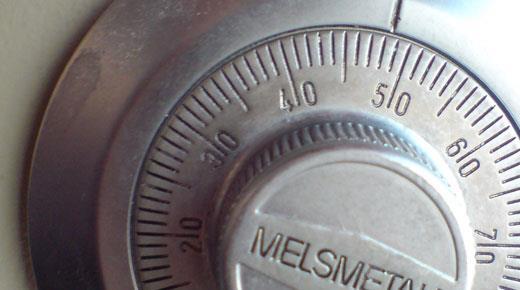
The first thing you must do is save enough money, in a high interest but easy-access (these pay less interest) account, to cover your living expenses for three to six months.
By living expenses I mean everything from your mortgage and utility bills to travel, food and all the costs associated with running your family if you have one. So once again, if you haven’t already done a basic budget (a list of your monthly incomings and outgoings) then do it now. That will show you how much you need each month to keep the roof over your heads and body and soul together.
The idea behind the three to six month period is that generally it takes around that amount of time for people to recover financially (and often emotionally) from problems such as redundancy, divorce or other happenings that stop them earning money for a time. Without a cash cushion, just a few months of little or no income (even with benefits coming in) can tip someone into serious financial difficulties.
new, very good investments when they appear.
3. Protect what you have but don’t be fooled
The insurance industry is large and lucrative and much of its income comes from exploiting the fear and ignorance of UK consumers. Here is where you have to be sooo careful. Use this book. Use your head. Use Moneymagpie.com - it’s at your disposal!
You can get all kinds of weird and wonderful insurances including pluvius insurance (insuring against rain ruining your event), multiple birth insurance (yes, really, you can get insurance against having twins or triplets) and particularly cynical disease insurances such as specific cancer insurance which was quite obviously dreamt up by the marketing department of particular insurance companies playing on the big fear of so many people. And we can all be scared. It’s so easy to be when you see the recent crisis on all financial levels. Keep calm and follow this advice.
Once you have collected enough money for this cash cushion then you can start investing. But it’s also useful to continue with other short-term savings for major purchases such as a car or a new boiler and also to create liquid (i.e. easily accessible) funds for yourself so that you can take advantage of
When thinking about which,
if any, insurances to take out, do it in this order:
1. The insurance you are legally obliged to have - basically motor insurance. If you have a motor vehicle you have to insure it, end of story. Just make sure that you shop around (probably on the internet is best) each year to get the best rate. Try the comparison services on Moneymagpie.com, also Kwikfitinsurance.com, Comparethemarket.com and Confused.com.
DON'T WANT TO WORK FOREVER? HERE'S HOW | PAGE 11
2. Buildings insurance, if you have a mortgage, is usually a requirement of the mortgage company. Strictly speaking, it’s optional, but the lender may insist you have this cover. If the property were to collapse, the lender would want to know that there is insurance to cover such a catastrophe. For this reason, most people are sold building insurance when they take out a home loan. Again, shop around on the internet for this. Don’t just accept the one offered by your mortgage company.
3. Insurance to protect your family. As soon as you have children you should take out life insurance on the lives of both parents. It doesn’t have to cost too much, see the article on Moneymagpie.com for more details. Avoid ‘life policies’ - they are expensive, largely pointless and only sold because the commissions for the salespeople are so tasty.
4. Lifestyle insurances that help you sleep at night. Home contents policies should be taken out by anyone who has more than just a few possessionsincluding students who often have more than they realise. If you travel regularly then take out a well-priced annual travel policy (as always see the comparison facilities at www.moneymagpie.com). Specific items of value such as gadgets, musical instruments and bicycles should be insured separately if they’re not covered by your home contents policy.
Think twice, at least, before diving into income protection insurance. It isn’t what it sounds. It won’t insure you against redundancy - nothing much does other than offensively high-priced policies with caveats in each line.
It may cover you against loss of earnings through long-term illness that prevent you from earning for several years. Whether or not you should go for it really depends how afraid you are of this happening.
Private medical insurance (PMI) - as tiresome as PMS and an even more complex animal. It’s increasingly expensive as medical procedures rocket in price and many

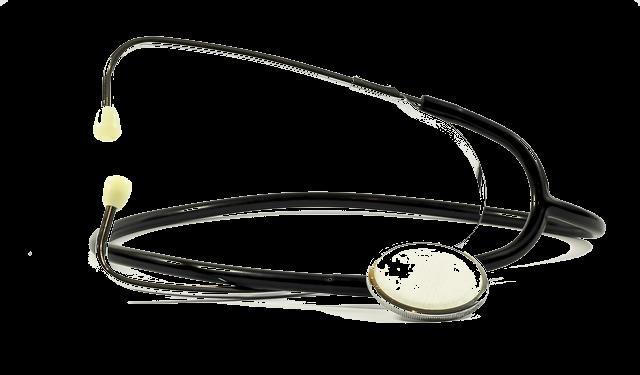
policy-holders have found too many exclusions and exemptions just at the time when they needed the money most. However, with the increasing likelihood of reductions in State benefits and NHS coverage, there is more and more reason for individuals to take out PMI.
When it comes to protecting your income, and giving yourself peace of mind, really the best policy is your own self-insuring cash cushion as explained above. If you create a good savings pot for yourself and your family you will remove the need for many expensive commercial insurance policies and have the advantage of creating a growing pile of cash if you haven’t needed to dip into it.
DON'T WANT TO WORK FOREVER? HERE'S HOW | PAGE 12
4. Consider paying off your mortgage

To pay off your mortgage as quickly as possible you will probably need a flexible type of home-loan to do it. If you currently have a fixed mortgage the chances are you can only overpay about 10% a year.
Depending on how long you have remaining on the fixed deal and how much the lender would charge you to switch out of it early, it may be worth staying with the fixed loan until the end of its term and then switching to a more flexible product. While you’re with the fixed loan you could pay off the 10% (or whatever the maximum is) and also set aside money in a savings account to pay off a lump of the mortgage as soon as you come out of the fixed term.
I’ll say it loud and I’ll say it proud like I’m on a megaphone, on a float at a radical political march, in fact I’m screaming...PAY OFF YOUR MORTGAGE AS FAST AS POSSIBLE.
Take note: financial advisers are not taught to tell people to pay off their mortgage. They are, however, taught to push insurance products and insurance-based investments. Coincidentally, financial advisers make no money from you paying off your mortgage or existing debt, but they DO stand to make commissions from recommending insurance products and investments. Funny that.
I love the idea of paying off your mortgage early (I paid mine off in nine years) because:
a) it gives you the most wonderful freedom (particularly if, like me, you are selfemployed and have to create work each month to make the payments!)
b) it is tax-free - any money you overpay into your mortgage saves you the full amount of interest, unlike savings accounts that will tax you on the interest you pay.
c) it is one of the safest investments you make - when you pay off your mortgage, you pay it off and that’s it. There is no uncertainty about what will happen to your money.
d) Once it’s paid you own your home outright – no longer does it belong to the bank manager.
e) the mortgage companies hate it because they lose money! And don’t we just love the upper hand?!
Remember that the more bells and whistles you get with a mortgage (such as extra flexibility) the pricier it is likely to be. Fixedrate and capped deals tend to be cheaper than others because they don’t offer much flexibility and give the lender the security of knowing they’ve got you for at least the next few years.
If you have only just bought your home and are finding it quite enough effort to pay the mortgage each month then don’t even think about switching from your cheap, fixed deal. However, if you have extra cash, have cleared your debts and are well on the way to amassing enough savings to keep you going for a few months then now would be a good time to go for a more flexible mortgage that allows you to overpay at any time without penalties.
In fact, if you really do have a good sum in savings and you plan on building up more then it would be worth looking at offset and current account mortgages. The two work in very similar ways.
Oh it’s good to be flexible.
With an offset mortgage your home loan is lumped in together with your current account and savings accounts so that any money you have on the plus side - the money that comes into your current account and the money that sits in your savings ‘pots’ - is offset against your mortgage.
DON'T WANT TO WORK FOREVER? HERE'S HOW | PAGE 13
This means that if you have borrowed £100,000 including your mortgage but you have combined savings and current account money of £20,000 you are only charged interest on £80,000. You still pay the same amount into your mortgage each month but more of that monthly payment goes into paying off the capital (i.e. the amount you owe not the interest you are being charged on it) because you are being charged less interest.

It does mean that your savings won’t grow because they don’t attract interest payments. However, you are better off overall because the money in a normal savings account would have to be taxed whereas using that money to reduce your mortgage is money that cannot be taxed.

The offset is a particularly useful mortgage for couples that are both working as you can both have your salaries paid into the account and start saving on interest from the moment the money hits the account.
Current account mortgages work in the same way except that rather than having a mortgage and various savings pots and current accounts it is all in one big current account which is constantly, massively overdrawn until you pay the whole lot off.
If you’re interested in current account and offset mortgages you can get more information on them in Moneymagpie.com (just put ‘offset mortgages’ into the search bar).
5. Set up investments for growth
Investing your money in well-performing products for the long-term is probably the most fun aspect of managing your cash (yes, that did say ‘fun’), simply because your money makes money for you while you sleep. That’s my idea of a good way to earn.
Investing for the long-term means investing for growth. You’re not looking to get money out now but to keep putting money into something that will grow steadily over the years. Because we’re thinking long-term it’s important to be bold in your investments and genuinely go for growth. So many people in this country can only bear to put their spare money into Post Office savings accounts, premium bonds and building society savings schemes that they will never benefit from wealth created without some research or similar effort. If you’re looking to invest over a few decades then going for the ‘safe’ option usually means the option with the lowest return.
Far too many financial advisers, advertising agencies and financial company marketing people play on the uncertainty and fear they know is rife among the majority of UK consumers. They offer investments with the words ‘guaranteed’ and ‘growth’ and ‘security’ in their titles. They tell you that these products ‘smooth out’ the ups and downs of the stock market and that they are spreading your investment for you across “different asset-classes” perhaps by “unitlinking” them.
Be bold and take your investments into your own hands. Ignore the fear and the hype. Read in this book how to invest in cheap, simple products that may seem scary in the short-term, but long-term are probably the most likely to create the real growth you need.
DON'T WANT TO WORK FOREVER? HERE'S HOW | PAGE 14
6. Have a mix of investments
As explained in the previous chapter, one of the most important aspects of investing for yourself is to spread your bets. This means putting your money in a variety of investments including shares, pensions, property, securities (bonds and gilts), cash and all sorts of other possibilities.
It’s not clever to invest in things you don’t understand so do make sure you develop enough knowledge in at least three types of investment. The reason is that if one or more collapses (nothing is 100% safe) you have the others to fall back on.
The mix of investments you have will depend on your age, your attitude to risk and what is generally happening in the markets (although I do mean generally - there is no point trying to react to every up and down of the different markets as that’s a sure-fire way to lose money and go mad!).
7. Move to safer, income-bearing investments.
Although the majority of this book is about investing for growth (I have assumed a
minimum of ten years investment time), it’s also important to know how to make the most of those investments once get to the stage where you want to live off them.
About five years before you want to live off your investments you should start ‘lifestyling’ them. In other words, gradually move your money from growth products to more stable, less exciting ones (cash deposits, bonds, gilts for example). That way you are more likely to lock in the gains you’ve made over the years.

It’s crucial at this point to shop around for the best income-bearing products (e.g. highest interest paying) to make the most of the cash you have accumulated. Finding the right annuity is particularly important as that is supposed to last for the rest of your life. Annuities are what you buy with your pot of money when you retire. The amount you get from an annuity is fixed until you shuffle off this mortal coil so it’s important to get the most you can possibly negotiate at the start.
There are loads of products to choose from. So, assuming you have paid off your nonmortgage debt, move on to the next chapter to find out the best ways to use the money available to you for saving or investing.
DON'T WANT TO WORK FOREVER? HERE'S HOW | PAGE 15






